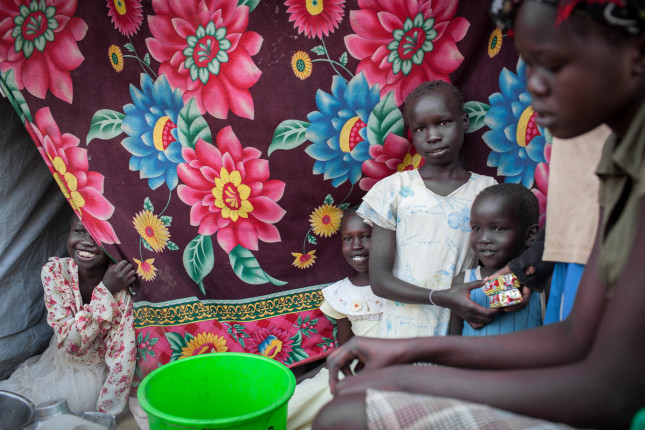-
Women Transforming Peace: Evaluating Progress 20 Years After Resolution 1325
October 28, 2020 By Hannah Chosid
“Despite national action plans and legislation in 84 countries, women remain undervalued in peacebuilding, and we know today [women are] seriously underrepresented in peace processes,” said Kathleen Kuehnast, Director of Gender Policy and Strategy at the United States Institute of Peace (USIP), at a recent event with USIP and the U.S. Civil Society Working Group on Women, Peace and Security (U.S. CSWG).
The event honored the 20th anniversary of United Nations Security Council Resolution 1325, which established the Women, Peace, and Security (WPS) agenda following its unanimous adoption by the UN Security Council in 2000. The resolution marked the first time the UN Security Council recognized the unique impact of violent conflict on women and girls, and it emphasizes the importance of women’s equal participation in peacebuilding and security efforts and of protecting women and girls from gender-based violence in conflict settings.
“In the context of conflict, it is evident that it is the women that bear the brunt of the violence,” said Rita Lopidia, 2020 USIP Women Building Peace Award Recipient & Executive Director and Co-Founder of Eve Organization for Women Development in South Sudan and Uganda. While men die on the frontlines in violent conflict, the consequences of the conflict, like caregiving, gender-based violence, and maternal death, fall on women, said Lopidia. “All these things impact the woman first, and then the family, and then the community.”
Women peacebuilders often invoke new conversations about peace and security, said Sanam Naraghi Anderlini MBE, Founder and CEO of International Civil Society Action Network and U.S. CSWG Member. For example, when women speak up about sexual violence during conflict, men also share their experiences. “It’s only when women started talking about these issues that men then had the courage to come and say, ‘actually, it happens to us, as well.’”
Women’s involvement in peacebuilding leads to feminist foreign policy, said Ambassador Bonnie Jenkins, Founder and President of Women of Color Advancing Peace, Security and Conflict Transformation and Member of U.S. CSWG. Women—especially women of color—need to have a seat at the policymaking table to define what security looks like to them. When women are involved, foreign policy shifts from a militaristic approach to a diplomatic, intersectional, representative, and human rights-based approach, said Jenkins.
The COVID-19 pandemic makes clear what advocates of WPS have said for years: “We need a much broader understanding of what defines security,” said Jacqueline O’Neill, Ambassador for WPS from the Government of Canada. “All of the guns and tanks in the world are powerless in the face of a disease and weak health systems.”
Sources: International Center for Research on Women, International Committee of the Red Cross Women and War, TIME, United Nations Human Rights Office of the High Commissioner, United Nations Office of the Special Adviser on Gender Issues and Advancement of Women, United States Institute of Peace, Women’s International League of Peace and Freedom
Photo Credit: South Sudanese children watch their mother cook in a refugee camp. Courtesy of Shutterstock.com, All Rights Reserved.
 A Publication of the Stimson Center.
A Publication of the Stimson Center.



